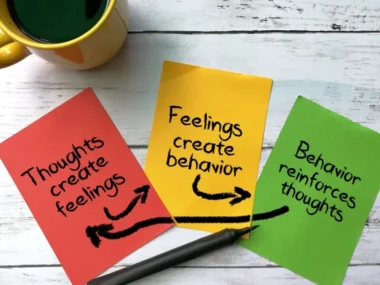Insomnia is a common sleep disorder that affects millions of people worldwide. It can lead to daytime fatigue, impaired cognitive function, and reduced overall quality of life. However, with some simple lifestyle changes and effective strategies, you can improve your sleep patterns and finally enjoy the rejuvenating rest you deserve. In this guide, we’ll explore practical tips and expert advice to help you combat insomnia and fall asleep faster.
1. Establish a Consistent Sleep Schedule:
Setting a regular sleep schedule is crucial for regulating your body’s internal clock. Try to go to bed and wake up at the same time every day, even on weekends. This practice helps align your natural sleep-wake cycle, making it easier to fall asleep at night and wake up refreshed in the morning.
2. Create a Relaxing Bedtime Routine:
Develop a pre-sleep routine that helps signal to your body that it’s time to wind down. Engage in calming activities like finding a quiet space, reading a book or magazine, or taking a warm bath. Avoid screens (phones, tablets, computers, etc.) at least an hour before bed, as the blue light can disrupt melatonin production, the hormone responsible for inducing sleep.
3. Optimize Your Sleep Environment:
Make your bedroom a sleep-friendly sanctuary. Keep the room cool, dark, and quiet to minimize disturbances. Invest in comfortable pillows and a supportive mattress to enhance your sleep quality. If noise is an issue, consider using white noise machines or earplugs to block out disruptive sounds.
4. Watch Your Diet and Fluid Intake:
Be mindful of your eating habits, especially close to bedtime. Avoid heavy, greasy meals and spicy foods as they can lead to discomfort and indigestion. Additionally, limit your caffeine and alcohol intake, as these substances can disrupt your sleep patterns. Instead, opt for a light, healthy snack if you’re hungry before bed. Consider trying herbal tea like chamomile or lavender, known for their soothing properties.
5. Incorporate Regular Exercise:
Regular physical activity can significantly improve sleep quality. Engage in moderate exercises like walking, jogging, or yoga, but try to avoid intense workouts close to bedtime, as they may stimulate your body and make it harder to fall asleep.
6. Manage Stress and Anxiety:
Stress and anxiety are common triggers for insomnia. Practice relaxation techniques such as deep breathing, meditation, or progressive muscle relaxation to calm your mind before bedtime. Consider keeping a journal to jot down your thoughts and worries, helping to clear your mind before sleep.
7. Limit Daytime Naps:
While short power naps can be refreshing, excessive daytime napping can interfere with your ability to fall asleep at night. If you need to nap during the day, keep it brief and avoid napping too close to your bedtime.
8. Evaluate Your Sleep Environment:
Assess your bedroom for factors that might disrupt your sleep, such as uncomfortable bedding, excessive light, or noise. Make necessary adjustments to create a peaceful and conducive sleep environment.
9. Consider Melatonin Supplements:
Melatonin is a hormone naturally produced by the body to regulate sleep-wake cycles. If you have trouble falling asleep, you might consider trying melatonin supplements. Consult your healthcare provider before using any supplements, especially if you have underlying health conditions or take other medications.
10. Use OTC Medication as a Last Resort:
In situations where you urgently need help falling asleep, you can consider using over-the-counter (OTC) sleep medications. However, these should only be used as a last resort and not as a long-term solution. Consult your doctor or pharmacist before using any OTC medications, as they may have side effects or interact with other medications.
Conclusion:
By following these practical tips and incorporating healthy sleep habits into your daily routine, you can effectively combat insomnia and fall asleep faster. Remember, consistency is key when it comes to improving sleep quality. Be patient with yourself and allow some time for these changes to take effect. If you’re tired of sleepless nights and want to take control of your sleep, start implementing these strategies today. Remember, better sleep leads to a happier, healthier you. Sleep is essential for overall well-being, so don’t underestimate its importance. If you’re still struggling with insomnia despite trying these tips, consider consulting a healthcare professional to address any underlying issues. Here’s to a good night’s sleep and a brighter tomorrow!





